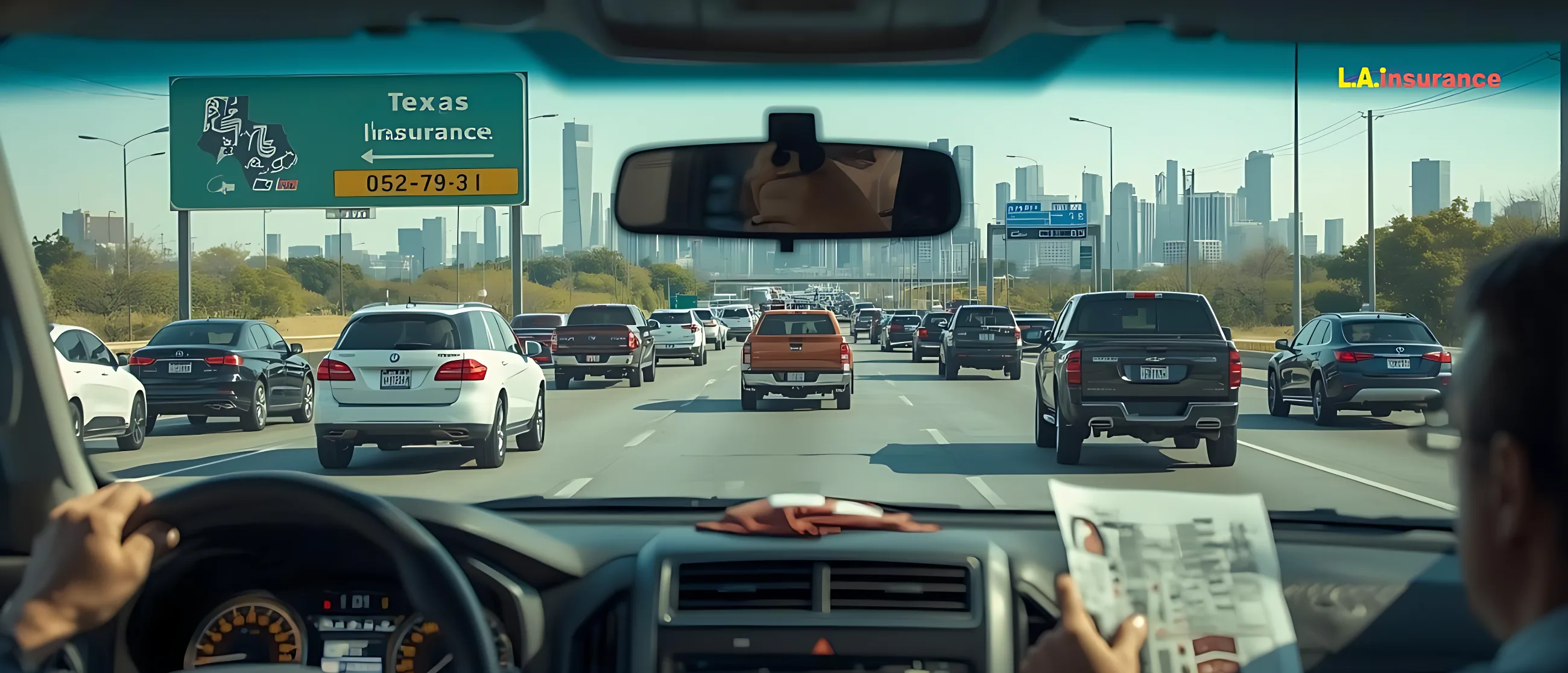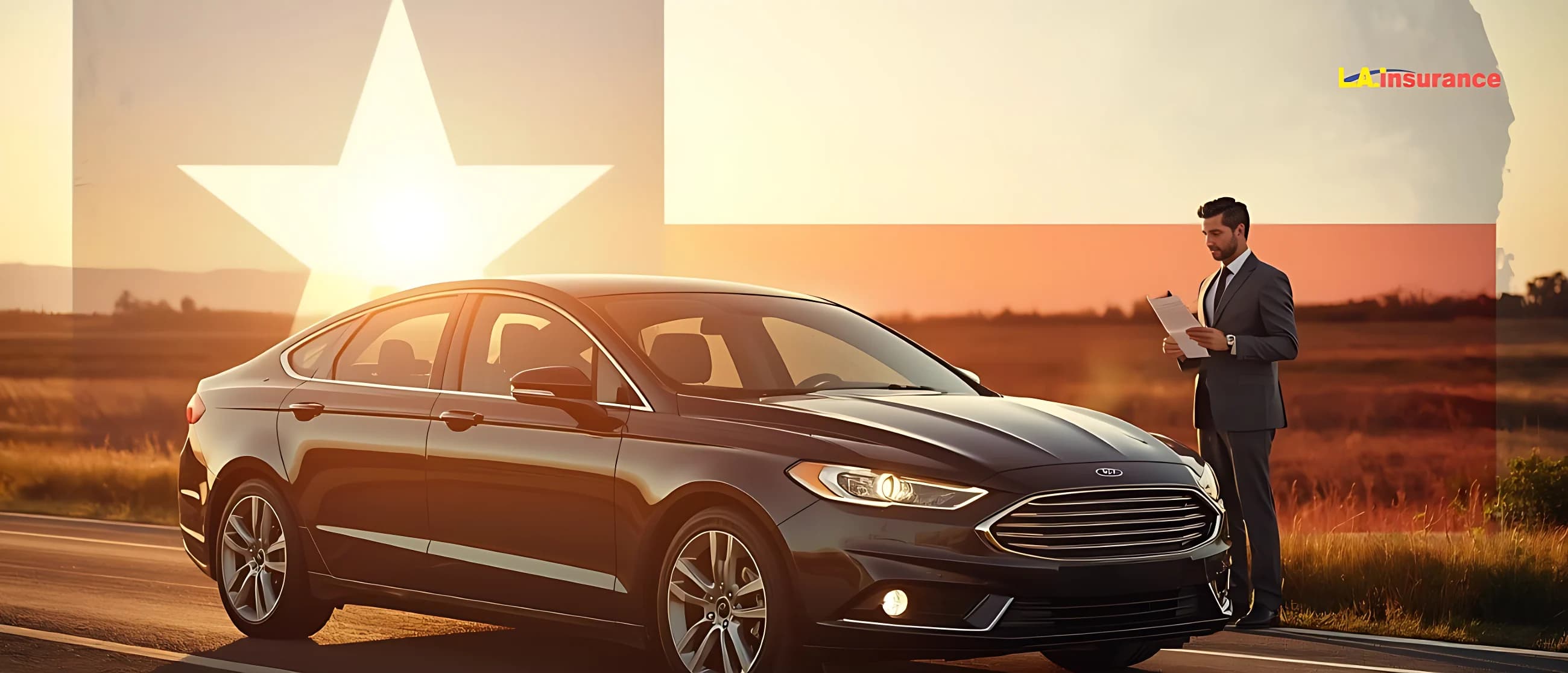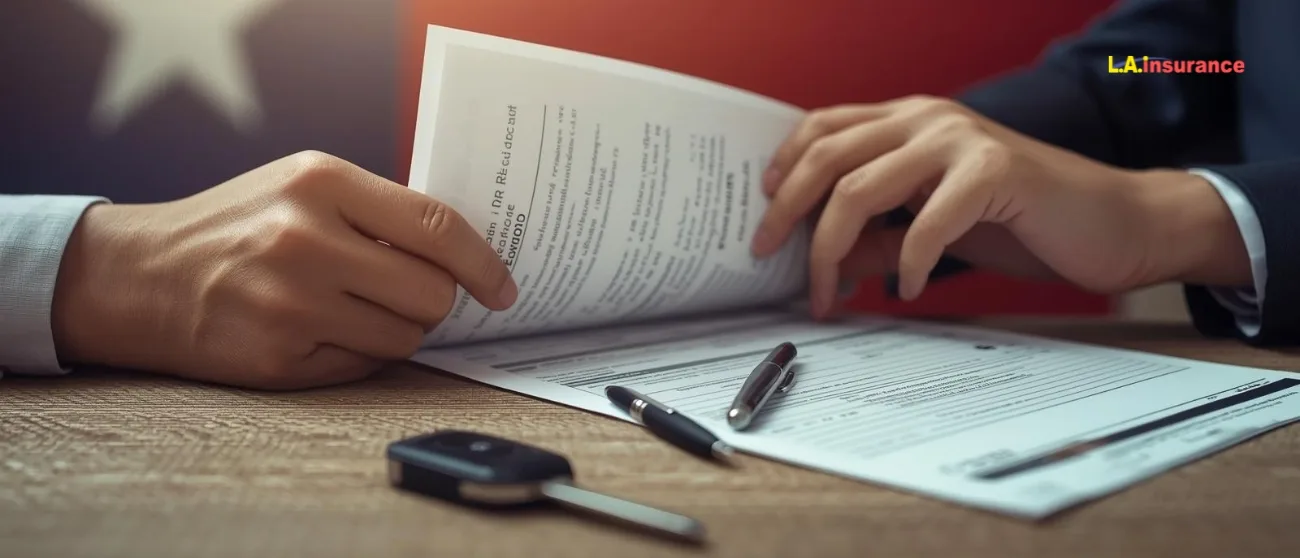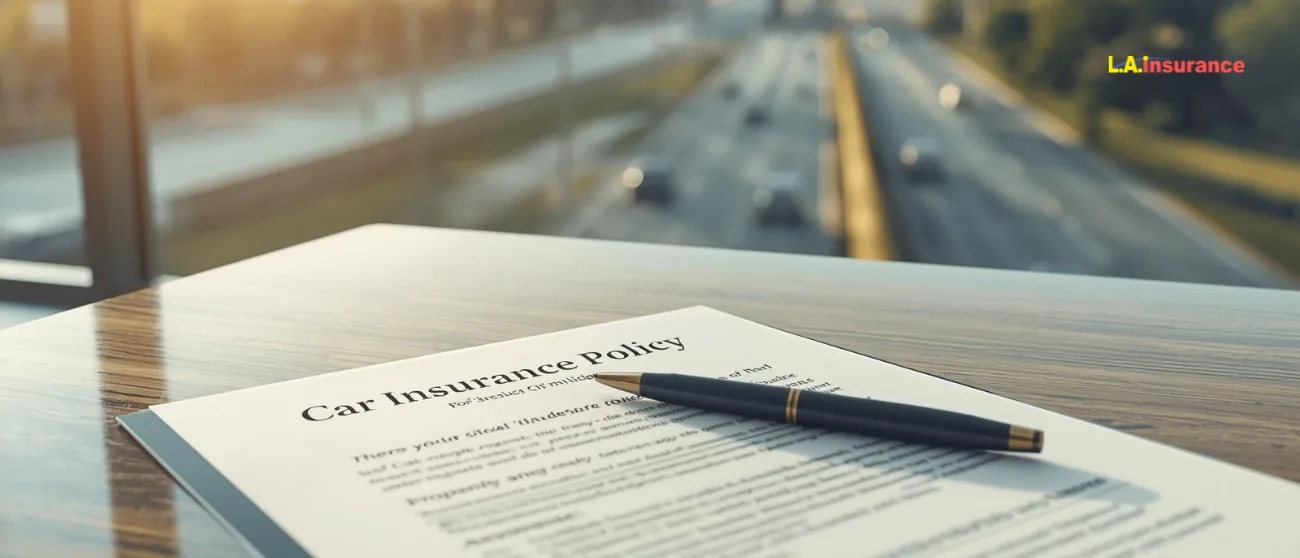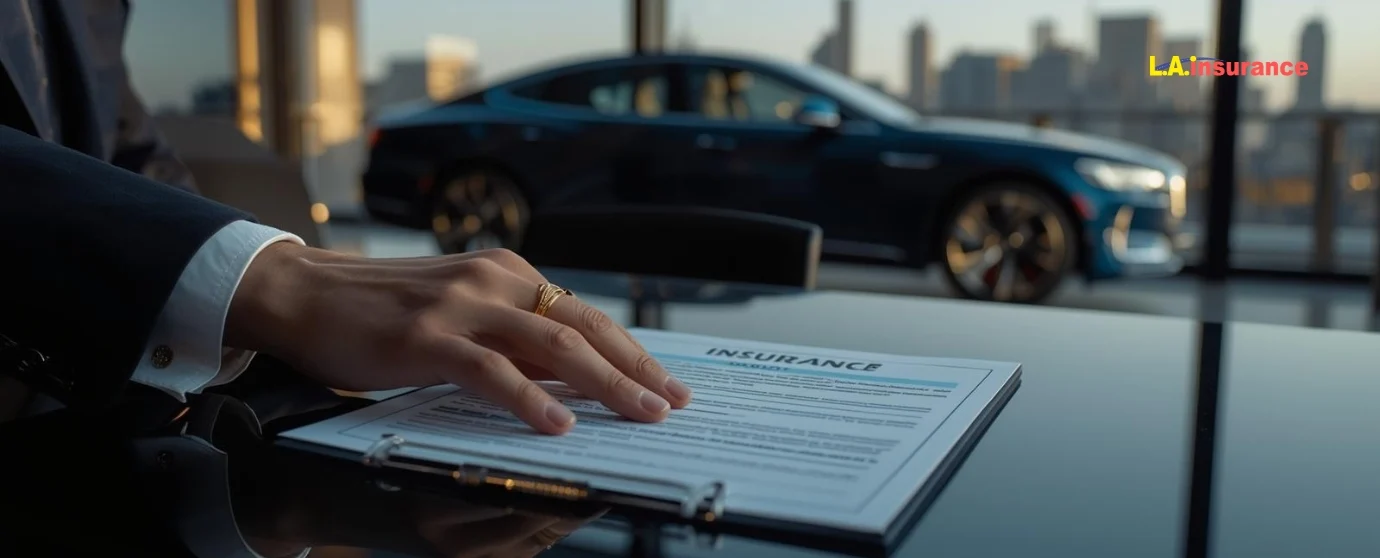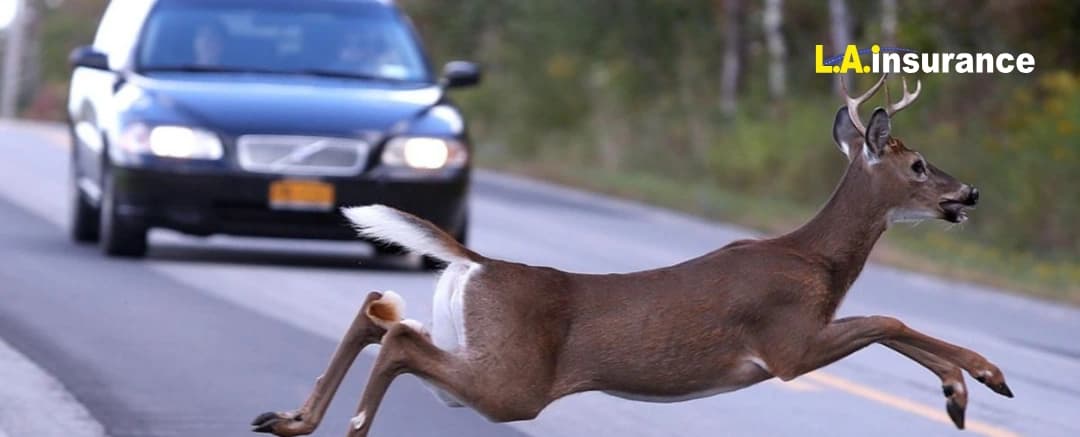
Publish Date: 21-07-2025
Auto Insurance
What to Do If You Hit a Deer?
You’re driving home. It’s quiet. You’re almost there. Suddenly, something hits your car. You slam on the brakes. Your heart races. You pull over to the side of the road, hands shaking. Stepping out, you see a deer lying there. Your bumper is hanging, and your headlights are smashed. And you ask yourself, 'What do I do now?'
Auto-deer collisions are common in many states. According to State Farm’s annual analysis, the likelihood of an animal collision is 1 in 128. If you drive between 5 p.m. to 10 p.m. or 5 a.m. to 8 a.m., there’s a high chance of deer accidents. It’s because deer are most active between dawn and dusk.
However, the risk increases if you live in deer-populated areas. West Virginia, Montana, Michigan, Pennsylvania, and Wisconsin are the top five states for deer accidents.
If you accidentally hit a deer—or it hits you—don’t panic. Take a deep breath, and follow these steps carefully.
9 Immediate Steps to Take If You Hit a Deer
Here are the 9 important steps you should take after a deer-vehicle collision (DVC):
- Pull Over to a Safe Spot
- Turn on Your Hazard Lights
- Stay Inside and Assess Yourself First
- Call the Police and Report the Accident
- Do Not Approach the Deer or Other Animals
- Document the Incident with Photos and Notes
- Check If Your Vehicle Is Safe to Drive
- Contact Your Insurance Company or Agent
- Follow Up with a Claim and Keep Records
1. Pull Over to a Safe Spot
Always remember the first rule of driving. Safety first.
So, the moment you hit a deer, your first job is getting to safety. Accidents can happen. Even with the most responsible and cautious driver. Don’t panic.
Gently steer your vehicle to the side of the road. Stay out of the way of oncoming traffic. Avoid slamming the brake, but do slow down firmly. This way you can prevent more damage or another accident.
If you’re on a highway or dark road where cars are moving fast, be extra careful. If you have been driving at night and visibility is low, try not to hurry!
2. Turn on Your Hazard Lights
Once you pull over to a safe place, immediately turn on your hazard lights. These emergency flashers alert other drivers that you’re not just parked.
Especially during dusk and dawn, visibility is poor. You want to be seen from a distance. Flashing lights tell others to slow down and move over. That’s how it reduces the chance of a second accident.
However, if your lights are broken, stay in the car and call for help. Let roadside assistance or law enforcement know your location.
3. Stay Inside and Assess Yourself First
Don’t rush out. Stay in the car. Breathe.
Adrenaline can mask pain sometimes. Give yourself a few seconds. And then check for any sign of injury to you or your passengers. If anyone’s hurt, call 911 right away.
Moving too quickly can put you in more danger, especially when the animal is still nearby or traffic is heavy. Always remember, your health and safety are top priority. Everything else comes after that.
4. Call the Police and Report the Accident
Yes, you should always make the call if you hit a deer or any other animal regardless of the state law. No matter how minor it seems, let the law enforcement know about it.
A police report may not be always mandatory but it’s one of the crucial pieces of evidence for your insurance and claim process.
Tell the authorities exactly what happened, where, and whether the deer is blocking the road. Even if the deer ran off, it’s still considered an accident. So don’t just guess! Let the police decide what needs to be done.
In some states, reporting is required by law if there’s property damage or injuries. For instance, if you live in Florida and hit a deer leading to more than $500 damage, or if anyone is injured, you’re required to report the incident. In Vermont, you’re required to report if a large animal like a deer is killed on a state highway. Georgia also requires reporting if the deer is still on the road.
5. Do Not Approach the Deer or Other Animal
You might feel tempted to check on the deer. Don’t.
A wounded animal can be scared, unpredictable, and dangerous. They may kick, thrash, or charge. Their hooves and antlers can cause serious injury.
Stay back. Let the police or local animal control agencies handle it. That’s their job, not yours. Even if the deer looks dead, you shouldn’t assume it is. Some regain movement suddenly.
6. Document the Incident with Photos and Notes
If it’s safe and you’re unharmed, step out and start collecting information.
- Take clear photos of the damages, vehicle, and road surroundings.
- Try capturing the skid marks or signs of wildlife activity.
- Snap anything that shows the accident scene including broken glass, fur, blood, and dents.
- Snap the deer as well if visible.
- Note the time, weather, road conditions, and any nearby hazards.
- If someone stops to help, ask for their version of what happened and get their name and contact info.
Note that the more you document the incident, the smoother your claim process will go.
7. Check If Your Vehicle Is Safe to Drive
Before going anywhere, inspect your car. Even if you give it quick glance, it can tell you a lot.
Look for leaking fluids, hanging bumpers, broken lights, or a jammed hood. If your tire is damaged or the wheel looks off, don’t take further risks by driving the vehicle.
A damaged vehicle might look fine but still be unsafe. That’s why if you’re in the slightest doubt or anything feels wrong, it’s best to call for towing or roadside assistance. If you don’t know whether towing is covered by full coverage or not, check out our article on does full coverage car insurance covers towing.
8. Contact Your Insurance Company Immediately
Once you’re safe and calm, make the call. Contact your insurance company as soon as possible. Don’t delay it.
Have your insurance policy number, photos, and any police report handy. Let them know it’s a comprehensive coverage situation, not a regular collision.
It's important to note that comprehensive coverage will only cover you’re the damage to your vehicle and pay for the repair cost. However, if the accident causes any injury, it will be only covered by MedPay or PIP (if you’re in a no-fault state). It’s because the comprehensive policy is designed to offer property damage coverage only not medical injuries.
Remember, the sooner you file your claim, the faster it will be processed.
9. Follow Up with a Claim and Keep Records
Once your comprehensive claim is filed, stay in touch with your insurance company and follow their instructions throughout the claims process. The process might take longer if the insurer has any suspicions about the claim.
Typically, you may need to wait a few weeks to a few months, depending on the insurer, state laws, and the complexity of the claim. It’s always a good idea to keep copies of the police report, photos, receipts, and any repair estimates.
If you paid a deductible, be sure to save the receipt. It could also be important later.
Does Insurance Cover Animal Damage?
Now you know what you should do after hitting a deer or if a deer hits you. However, if you have ever thought about whether insurance covers animal damage including deer, then this part is for you.
The answer is affirmative. Any sort of animal damage is covered by auto insurance as long as you carry comprehensive car insurance coverage. It’s a financial shield against animal damage, theft, vandalism, natural disasters (e.g., floods, storms), and wildfire. If your vehicle is damaged by animals such as deer, rodents, raccoons, or coyotes, you’ll simply need to file a comprehensive claim and pay your comprehensive deductible.
However, if you swerved to miss the deer, and ended up hitting a tree, fence, or another car, it will be considered a collision claim. In that case, you have to have collision insurance to get the reimbursement.
If you have any confusion related to this, read our article: Is hitting a deer comprehensive or collision? Also, keep in mind that if you only have the state’s minimum liability auto insurance policy, you won’t be covered for animal damage. Because liability insurance doesn’t pay for damage to your own car. It only covers other people’s injuries or property when you’re at fault.
Related Article: Does Liability Insurance Cover Hitting a Deer?
Protect Yourself from Animal-Related Risks with L.A. Insurance
Some areas are most prone to animal-related accidents. If you’re in one of the following states, you should always make sure you have the right auto policy to get covered from animal damage:
- West Virginia
- Montana
- Michigan
- Pennsylvania
- Wisconsin
- Mississippi
- Iowa
- South Dakota
- Virginia
- Rhode Island
These states are at high risk when it comes to animal collisions. That’s why to protect your vehicle in these states, contact L.A. Insurance. We provide affordable full coverage car insurance for everyone including high-risk drivers. It combines liability, collision, and comprehensive insurance.
When it comes to auto coverage, L.A. Insurance is the most affordable insurance agency. Whether you want to find an agent or simply need to chat, we’d love to hear from you. Dial us at (800) 893-9393 or directly ask for an auto insurance quote online.
Wrapping Up
We hope you always stay safe after any animal collision, especially deer-related incidents. It's crucial to remain calm, and composed, and avoid rushing your decisions. The best way to handle such unexpected situations is to take a moment to pause, breathe deeply, and assess the situation as carefully as possible. Remember, the choices you make in those first moments shape everything— from your safety to your insurance claim.
Frequently Asked Questions (FAQs)
What to do if you hit a deer in Michigan?
If you hit a deer in Michigan, your first priority is safety. Pull over to the side of the road, turn on your emergency flashers, and stay inside your vehicle if possible. Don’t approach the deer, even if it looks dead it could still be alive and dangerous. Then, call 911 or the local police. While you’re not legally required to file a police report in Michigan after a deer-vehicle collision (DVC), doing so is highly recommended. Because your insurance company may ask for that report to validate your claim.
Please note that Michigan is a no-fault state, which means hitting or killing a deer in an accident is considered no one’s fault. Your comprehensive policy will cover if the crash causes any vehicle damage. Without it, you’ll be footing the repair bill yourself. Also, if there are any injuries to you or your passengers, your personal injury protection (PIP) coverage under auto insurance will cover medical expenses.
According to the Michigan State Police, nearly 58,000 vehicle-deer crashes occurred in 2023, with 80% of them happening on two-lane roads, mostly around dusk and dawn. This isn’t rare. So always stay alert. And if you need coverage for deer-related accidents, never hesitate to contact L.A. Insurance based in Detroit, MI. We make sure you’re always on the safe side by providing cheap insurance in Michigan.
What you should do if you hit a deer and it runs away?
If the deer runs away, you should still document the incident. Take photos of fur, blood, or damage. Call the police, especially if there’s property damage. Your insurance company may still require evidence for a valid claim.
Do you need a police report to file a claim if you hit a deer?
Although it’s not legally required in most states, you should always call the police if you hit a deer, and if it is sustained property damage or injuries. A police report can also be helpful if you have to file a claim. It’s your proof that the accident involved a deer, not another object.
Are you responsible if you hit a deer?
Generally, no. You’re not held at fault for hitting a deer, as it’s considered an unavoidable accident. Still, without comprehensive insurance, you’re financially responsible for vehicle damages and towing costs.
What to do if you hit a deer in Ohio?
Like any accident, safety is the first thing you should look for after a deer accident in Ohio. So, pull over and make sure to calm down and check if you’re hurt. Call 911 even if you don’t think it is too serious. Note that according to the Ohio Legislative Service Commission (Laws and Legislation Rules), you’re legally required to report the accident within 24 hours if you kill a deer and want to keep it. A wildlife officer or law enforcement must issue a certificate of ownership. Besides, if your vehicle is damaged in the deer accident, contact the insurance carrier and file a claim under the comprehensive policy if you have one.
Editorial Disclaimer
The information provided on this blog is for general informational purposes only and does not constitute professional insurance, legal, or financial advice. Coverage and rates are subject to individual eligibility, underwriting guidelines, and state availability. For specific questions regarding your policy or to get an accurate quote, please contact a licensed L.A. Insurance agent directly. We're an independent agency and not a direct insurance carrier. For more information on how we operate and handle your data, please see our Terms and Conditions and Privacy Policy.
Tag :
Comercial Auto
Auto insurance
